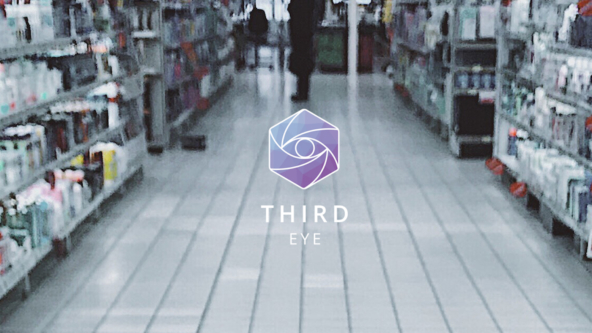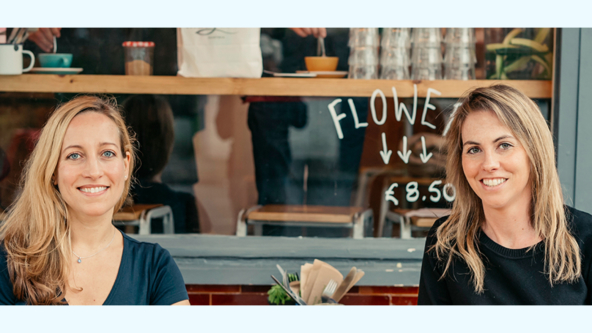Octopus Ventures backs next-generation pioneers who dare to reimagine the future of health, the future of deep tech, and the future of money. Zihao Xu, Investment Manager at Octopus Ventures and coordinator of the Future of Money pod, believes his team is backing the companies that will transform the way we exchange and allocate resources as a society.
They say that money makes the world go around. But, for consumers and institutions alike, there are many obstacles that stop things being quite so easy. The Future of Money pod at Octopus Ventures supports and invests in the companies that are removing those obstacles, and rewriting the rules of how money works.
“Our monetary system is brilliant compared to a thousand years ago,” explains Zihao. “But when you think about the time and cost of moving money internationally, for example, we’re a lot less effective than we should be, particularly with the technology we have.”
So, what are the big changes happening in the world of money? According to Zihao, it’s in four key areas: making money easy and simple to exchange, helping consumers and institutions invest smarter, creating innovative insurance products, and finally, transforming the way money itself works.
Making transactions simpler
The critical roadblocks to exchanging money are speed, reliability and cost. And firms like Token are trying to tackle all three at once.
Backed by Octopus Ventures, Token has developed an open platform that allows banks and financial institutions to program and interpret account transaction data. The result? Cheap, secure, instant payments, and bank accounts with up-to-the-second transaction histories – a long way from the two-day lag we experience today.
Token is also exploring cross-border stablecoins (a steadier type of cryptocurrency) to make international transactions faster and cheaper. “Currency exchange companies like Transferwise are doing a great job of removing inefficiencies in international exchanges,” says Zihao. “But with Token’s infrastructure, those inefficiencies wouldn’t exist in the first place.”
Transforming the ins and outs of investing
Private market investments might deliver eye-catching returns, but the size of investment required historically meant that only big players could reap the benefits. Not anymore.
“Traditionally, Joe Bloggs wouldn’t get access to the great returns of private equity investments. But now, there are companies developing new and efficient ways for those with smaller cheque books to benefit,” says Zihao.
Opening up private markets to public investors is just one of many changes in the investment world. At Mosaic Smart Data, they’re using AI to enrich data, so banks can make better-informed decisions about where and when to invest. “You’d imagine that big investment banks use complicated algorithms to make these decisions,” says Zihao, “but the reality is very different.”
“Large banks tend to grow organically, using different trading platforms and systems, which makes it hard to pull data together. Mosaic Smart Data plugs into all of those systems to give sales and trading desks a real-time overview. And with better data comes smarter investment decisions.”
There are also changes afoot in the world of consumer finance. In the past, getting sound financial advice was intimidating – and expensive. But Multiply offers free, unbiased advice to anyone. “It takes into account your current situation and your life goals, and sucks in data from products around the market,” says Zihao. “Multiply also uses economic scenario generators to make 30-year projections. It’s the first totally automated engine to have these functions.”
Insuretech developments for how we live today
In the insurance world, pioneering firms like Bought By Many and By Miles are using smart data to price their premiums more accurately. Others are using data to insure technologies like drones, self-driving cars and smart contracts blockchain.
“Insurance companies need to up their game to meet the expectations of consumers,” says Zihao. “We’re already seeing flood insurance that’s controlled by sensors in the home; when the sensors detect a certain amount of water, the insurance automatically pays out. There’s no need to file a claim, or have a claims department, which means lower premiums overall.”
The future of money itself
Many of the technological advances in money involve enriching data to put accurate information in the hands of those who need it. But for Zihao, the most exciting developments are changing money itself.
“I think that blockchain is potentially the biggest game-changer in all of this,” says Zihao. “Not buying and selling blockchain in itself, but the blockchain-distributed ledger.”
Traditional ledgers are a centrally stored ‘source of truth’, where banks record transactions and balances. But distributed ledgers don’t rely on a central authority. Instead, changes are updated and monitored independently by a network. That opens up a world of speedier and cheaper transactions, because there are no middlemen.
So, where might this new technology take us? “We don’t really know yet – and that’s what’s exciting,” explains Zihao. “Nobody imagined when the internet was developed that we’d be swiping left or right to look for a partner, or hailing a car with our phones. Technological innovation brings us closer to a monetary system that’s better for individuals and society, and helps us live happier, better lives.”
And that’s Octopus Ventures in a nutshell: backing the pioneers who are shaping the future of money – and opening up opportunities for people the world over.
For more information about the Future of Money pod, and how Octopus Ventures is helping pioneers to change the world, visit octopusventures.com.


